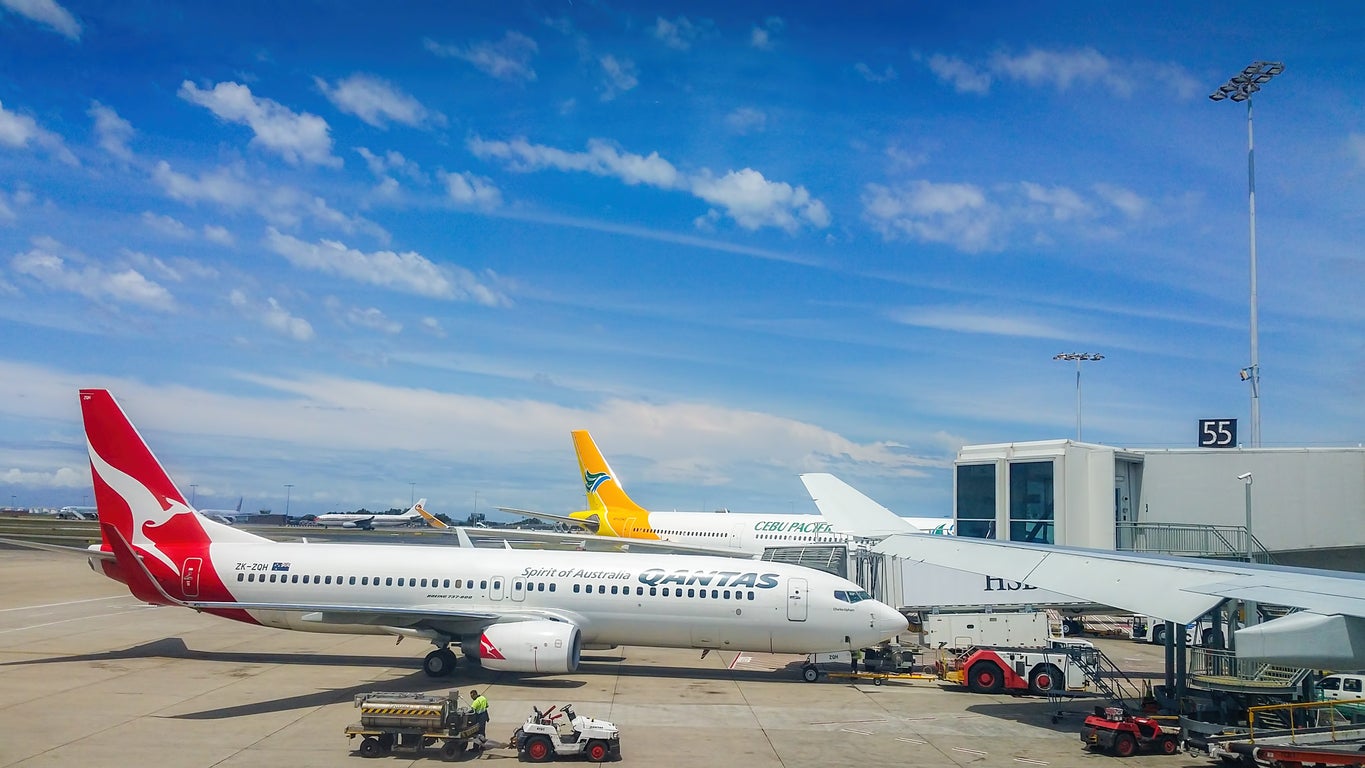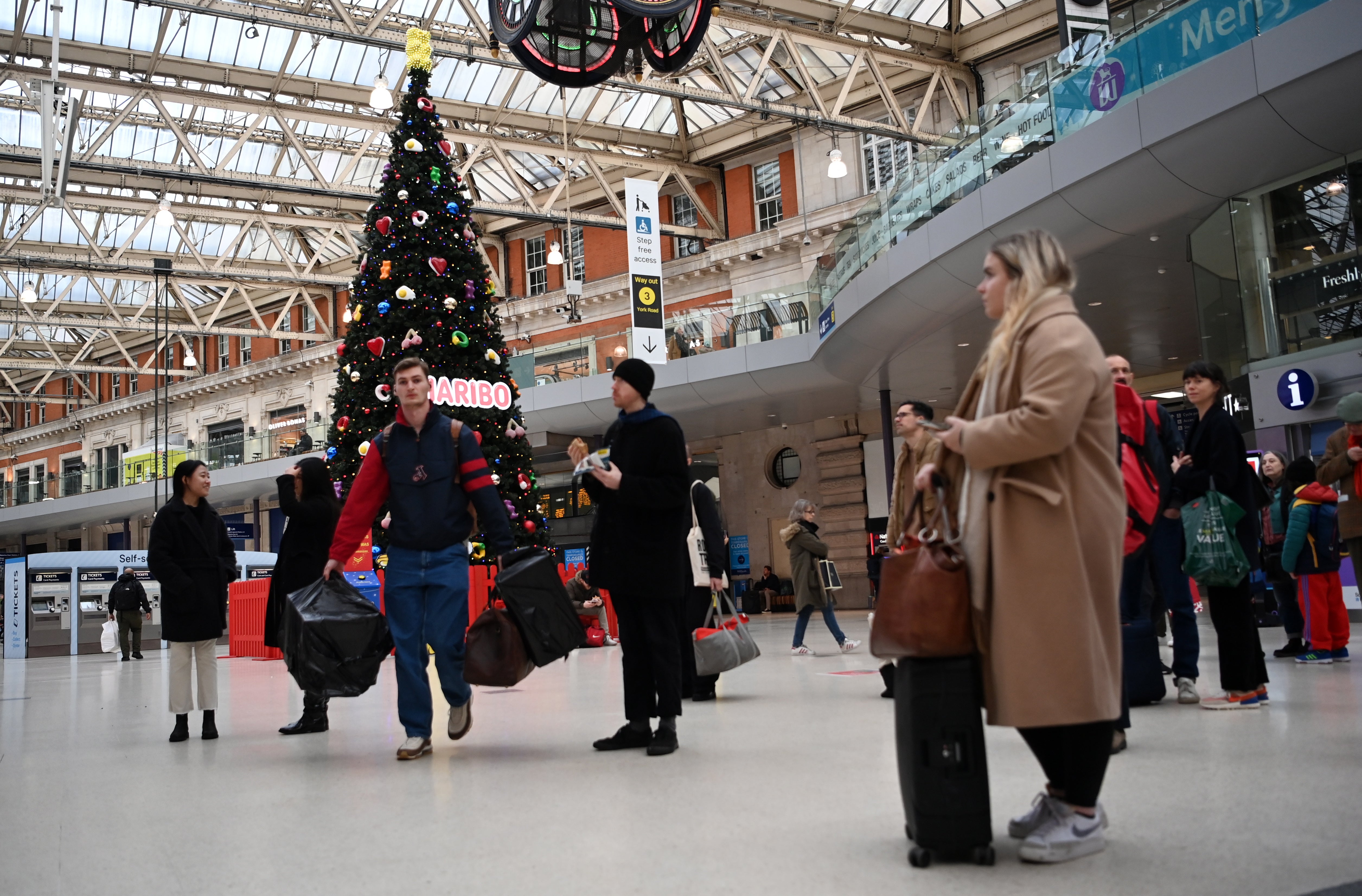Why do planes take long diversions during an emergency?
Simon Calder answers your questions on diverted flights, missing connections and rail travel at Christmas


Q I read about the Qantas plane that was diverted to Baku because of a smoke alarm? Why did it fly 400 miles there rather than just landing in Tbilisi? Surely if it is an emergency you just get the plane down safely as soon as possible?
Adam R
A Around 400 passengers and crew aboard Qantas flight QF1 spent an unexpected 48 hours in the capital of Azerbaijan after a diversion in the early hours of 23 December. The flight from Sydney via Singapore to London Heathrow was flying above central Georgia about four hours from its destination. Then, according to the Australian airline, "the aircraft intermittently alerted the pilots to the potential of smoke in the cargo hold”.
The pilots turned the plane around and flew 400 miles to the Azeri capital, where it landed safely. But there were much closer international airports in Georgia itself: Kutaisi, the nearest at the time of the diversion, and Tbilisi, the capital. But the runways appear to have been deemed too short – and would certainly not have had the handling equipment required for double-deck planes.
The most obvious big international airport was Sochi in Russia, about 200 miles away, which could easily have handled the A380. But even in normal times processing diverted passengers without Russian visas has proved challenging, and international sanctions would have made it extremely difficult to mount the subsequent rescue operation.
Istanbul, 700 miles away, would have been a much more appealing location, with an abundance of facilities and lots of flights to London to which passengers could have been transferred. But with fire in a hold a possibility, Baku was the best nearby choice. It also had some previous experience: in 2014 the airport at the Azeri capital handled an emergency A380 landing (also from Singapore) after a depressurisation incident.
A replacement plane was dispatched from Sydney, and the passengers eventually reached London about 50 hours late on Christmas morning.

Q My Christmas is ruined. I have just returned from the airport after I was turned away from my flight to Delhi. The airline refused me because I didn’t have an Indian visa. But I didn’t need one. I had a separate ticket onwards to Thailand and was simply planning to stay in the airside transit area in Delhi. I have now lost a fortune and am stuck in the UK where I really didn’t want to be.
Norman
A Sorry to hear about your travel calamity. This is a really tricky case and you may wish to take legal action against the airline – although you could expect a robust defence were you to do so.
The conditions of carriage for every airline say something to the effect that you must meet the entry requirements for your destination. For anyone travelling on an international-to-international connecting ticket, the immigration rules for the hub where you intend to change planes are usually irrelevant (the US is a notable exception). But you chose to travel on two separate tickets: one to Delhi, the next to Thailand. I can easily see the logic that the check-in agent applied: we, the airline, are flying you to India with no further transportation. Therefore you must meet the requirements for entering India (chiefly an eVisa). Protest as you might about having an onward connection, he or she would be extremely wary about letting you on board.
What if you had to exit the terminal to go to another terminal (Delhi has three)? What if your onward flight to Thailand was severely delayed or cancelled? You would have to explain to Indian immigration that you had arrived without a visa, and the airline that flew you there would face a reprimand and a financial penalty,
That argument for turning you away looks compelling – except that a lawyer could argue that you did, indeed, meet the conditions for a transit flight at Delhi and therefore were wrongly denied boarding. Were this argument to succeed, you would be entitled to denied boarding compensation of £520 as well as the costs that you lost. I suggest you point this out to the airline and assess the response.

Q Apart from the lousy rail situation due to all the strikes, what is your view on whether we should do the same as continental countries in terms of running trains right through Christmas?
James S
A The last time passenger trains ran anywhere in the UK on 25 December was a brief trial by the Heathrow Express two decades ago. Before that, some services ran on the Glasgow suburban network in the 1980s. But for years Christmas Day has been a no-train date nationwide. In recent times, some more enterprising train operators have been running services on 26 December (all of which are cancelled this year by the strike, of course). Most train firms say that they give staff two days off because there’s no demand.
For evidence that this is a ridiculous excuse, look no further than Victoria Coach Station in central London. Over the years the number of 25 December trains has increased to the point where on a route such as London-Bristol there are nine long-distance buses from National Express alone between 8am and 8pm.
Across Europe they do things differently; Nicky Gardner, co-editor of Europe by Train, tells me: “Here in Germany the trains run to normal timetables on 25 and 26 December. The only holiday concession that that some long-distance late evening services on 24 December are trimmed. But night trains run as normal and our local station will still have half-hourly S-Bahn [suburban] trains overnight on Christmas Eve. A normal Sunday service runs on Christmas Day and Boxing Day.”
If and when railways in the UK return to something like normality, I hope part of the improved deal for passengers will involve running trains 365 days a year. But right now, with Network Rail telling people to stay away from trains until 9 January, I fear rebuilding even pre-strikes service is going to be a struggle.
Email your question to s@hols.tv or tweet @simoncalder
Join our commenting forum
Join thought-provoking conversations, follow other Independent readers and see their replies
Comments
Bookmark popover
Removed from bookmarks